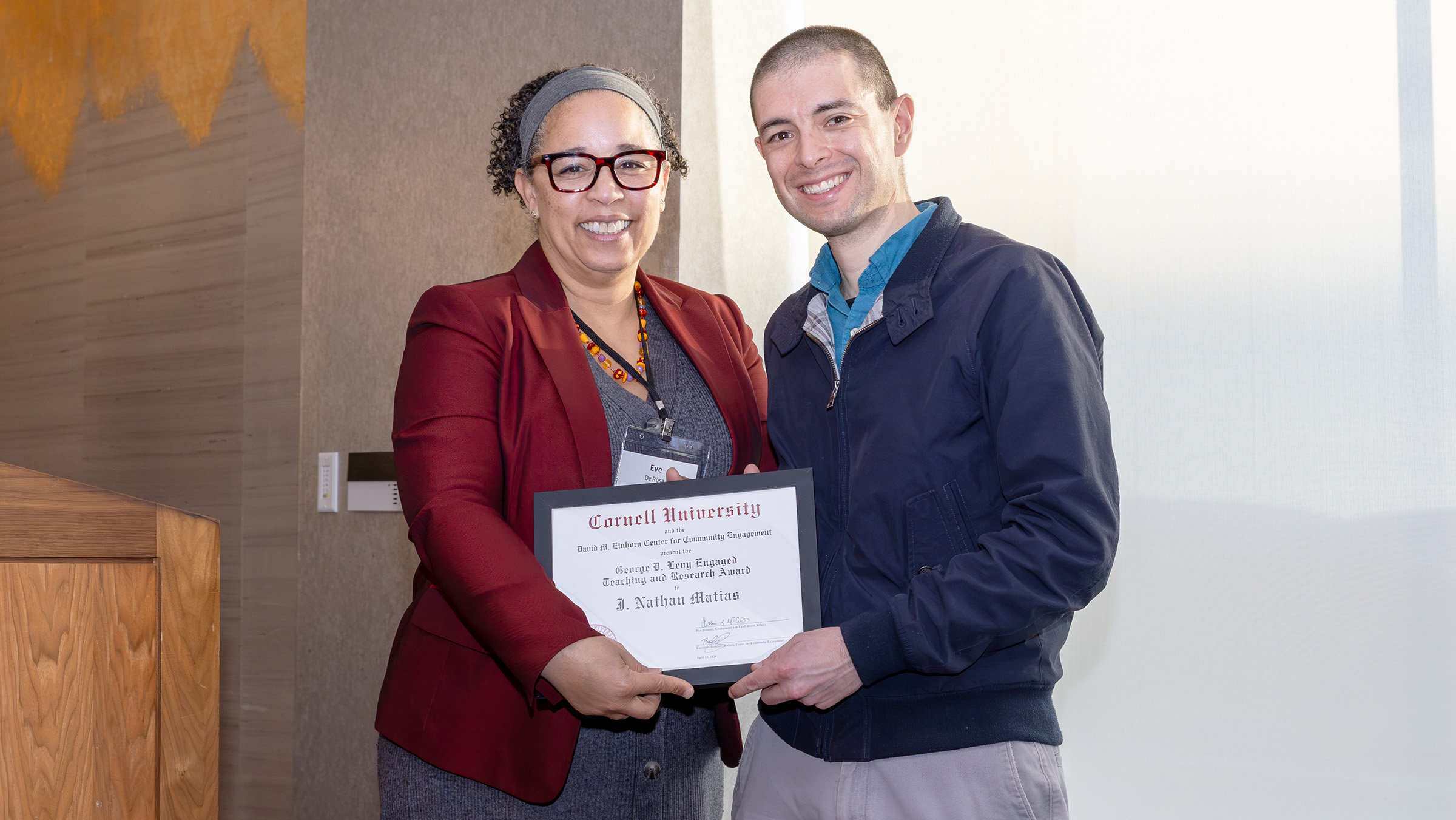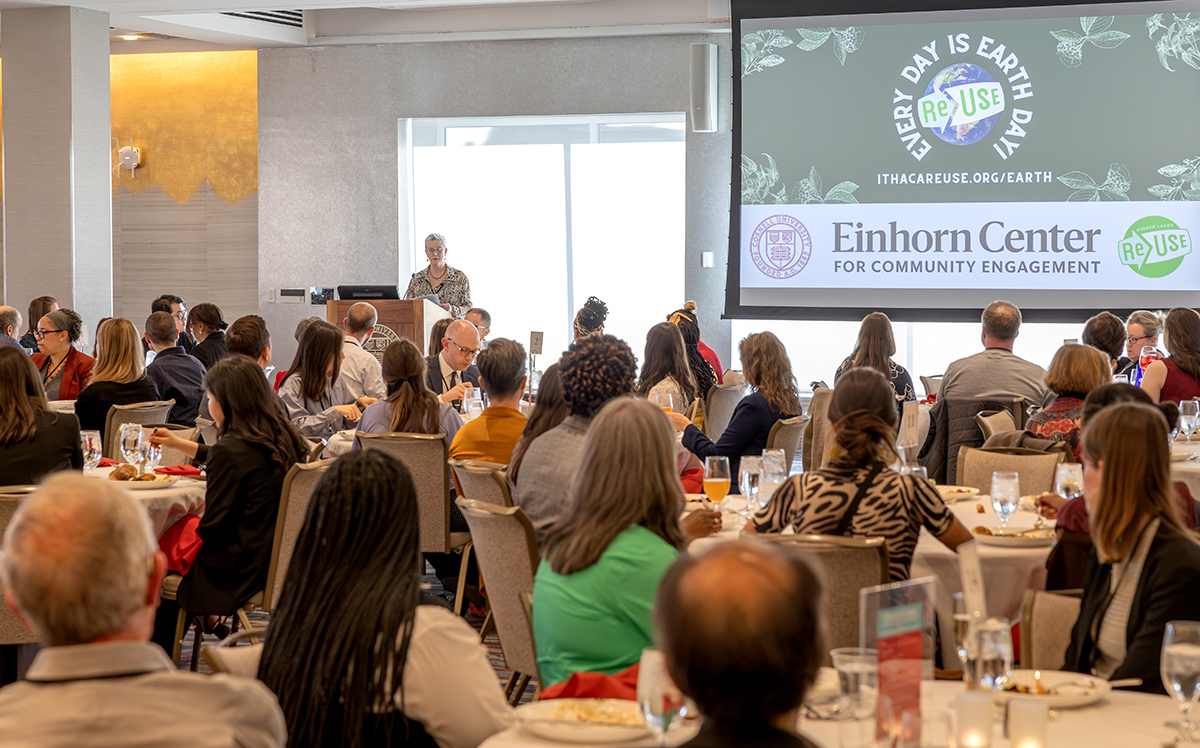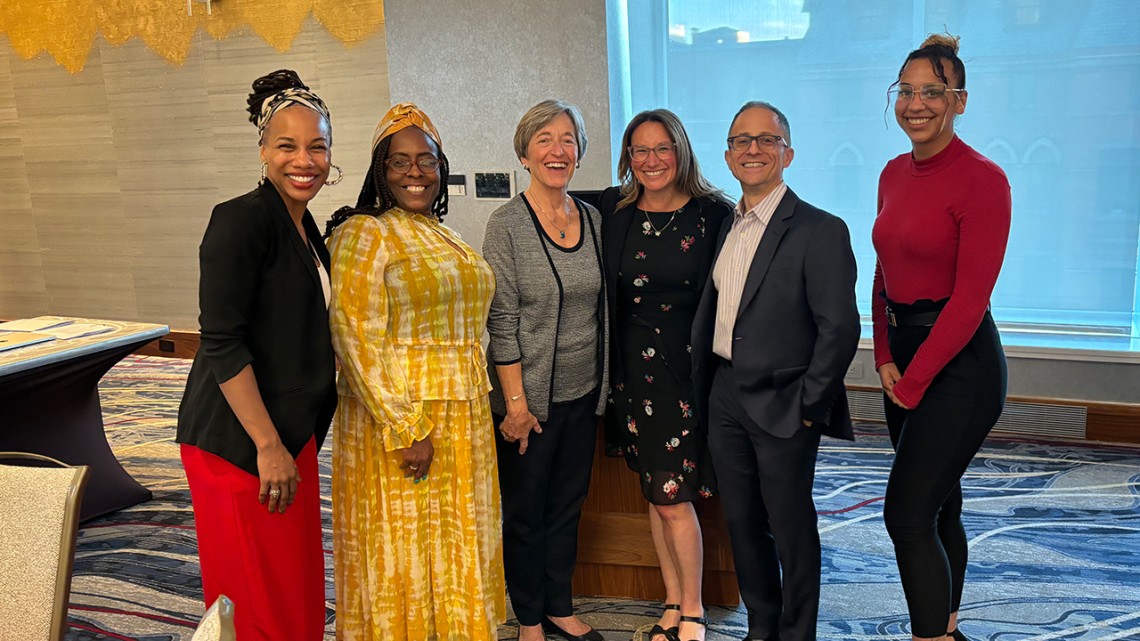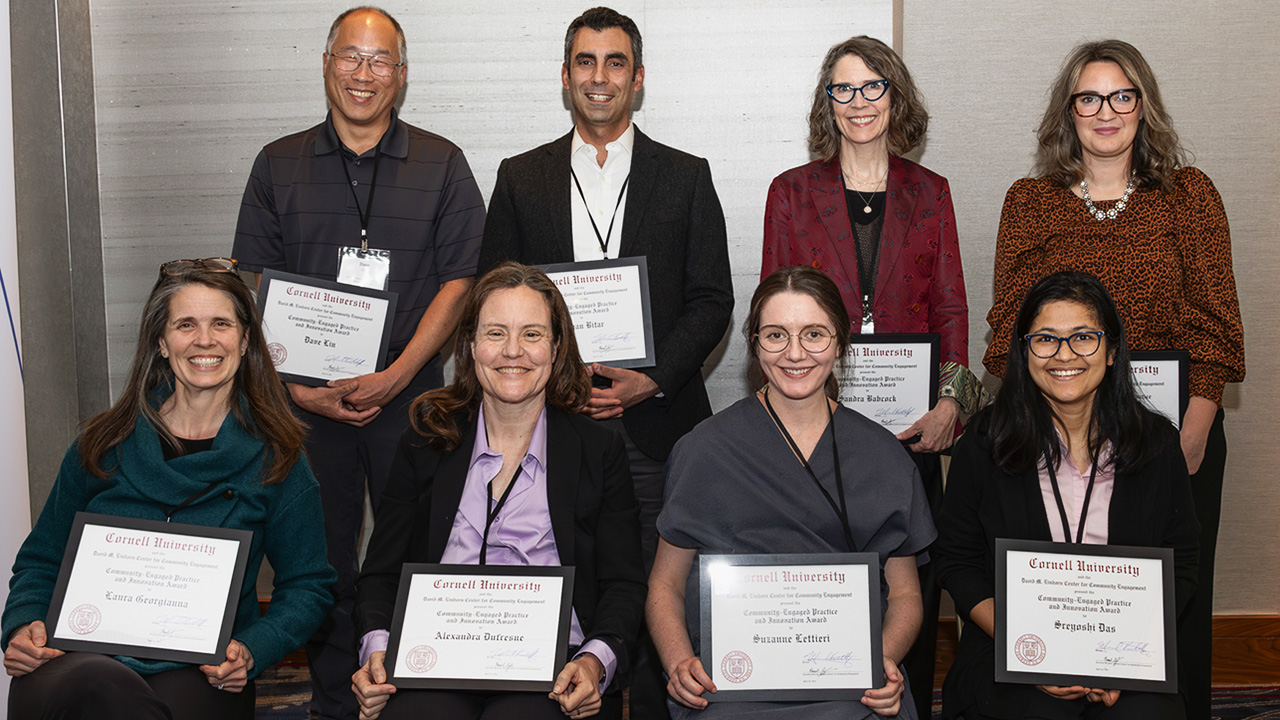
Artificial intelligence (AI) has become a widespread tool in hiring processes — and New York City’s Local Law 144, passed in 2021, is the world’s first hiring algorithm transparency law trying to address concerns about bias and discrimination introduced by the system. This case study is at the center of a large community-engaged learning project run by J. Nathan Matias, assistant professor in the Department of Communication in the College of Agriculture and Life Sciences and this year’s recipient of the George D. Levy Engaged Teaching and Research Award.
Administered by Cornell’s Einhorn Center for Community Engagement, the award recognizes a member of the Cornell faculty whose collaborative efforts within the community have resulted in exemplary and sustained community-engaged learning projects. The Levy Award, which was established by the family of George D. Levy, MBA ’54, in his memory, comes with a $5,000 prize.
Some 500 students in COMM 2450, Matias’s course on communication and technology, will have the opportunity this fall to study the implementation and impact of New York’s law on labor markets — a topic of keen interest to jobseekers and to policymakers worldwide. Local Law 144 requires employers who use AI in their hiring decisions to have their tools audited for bias and make the results publicly available.
The course builds on a pilot project from last year, during which Matias first partnered with Consumer Reports and the Data & Society Research Institute. Both independent nonprofits are leading research and consumer organizations based in New York state. Funding from the award will help pay for a part-time research assistant to coordinate logistics with the community partners.
The previous collaboration studied how nearly 400 employers in New York complied with the law — research that was peer reviewed and published in a computer science journal and was covered in the Wall Street Journal. The fall 2024 project will explore processes for job seekers to request alternatives to AI systems and exercise their rights under the law. Students will work with Alan Smith, the manager of Community Leadership at Consumer Reports, to engage with some of Consumer Report’s six million members through online articles, emails and surveys and develop research questions defined by job-seeker needs.
For students, the hands-on projects offer rich opportunities for learning. “Professor Matias was very mindful of creating a project for the student investigators that allowed them to gain valuable research experience while also engaging with employers that have held career paths for their peers,” said Roxana Mika Muenster, a Ph.D. student in the Department of Communication who served as a teaching assistant in last year’s course.
Matias and his colleagues hope that these pilot projects will lay the groundwork for future research and learning.
“Next year and in the longer term, I’m eager to collaborate with students in Dr. Matias’s classes on projects that engage the public on technology and consumer issues,” Smith said. “I can think of many other issues where the energy and expertise of Cornell students will make them ideal partners for our work alongside consumers.”
Matias agrees that sustained community-engaged learning is the goal. “We hope this project will lay the foundations for longer-running collaborations between COMM 2450 and public-interest organizations including Consumer Reports and the Data & Society Research Institute,” he said. “We have already begun to discuss possible future projects related to the state’s $1.4B appropriations toward broadband for all, as well as projects related to AI-based tenant screening tools.”





